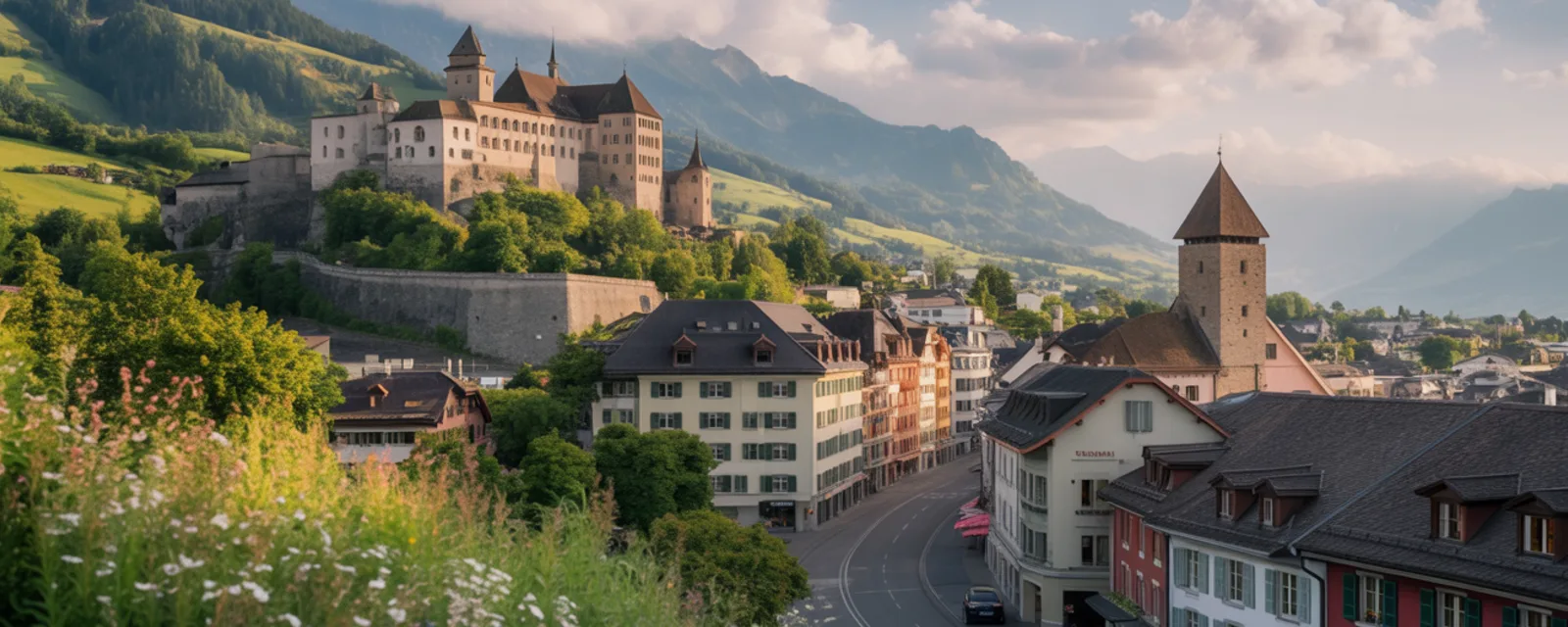
Relocation Liechtenstein — Executive & Wealth Management
Exclusive relocation support for high-net-worth professionals and families.
Liechtenstein is an Alpine principality known for favorable tax structures, wealth management excellence, and privacy—attracting executives, trust administrators, and high-net-worth families. With a population of 39,000 and extremely limited housing inventory, Liechtenstein relocations require specialized expertise. Most professionals live in nearby Swiss towns (Buchs, Sargans, Bad Ragaz) or Austrian Feldkirch while working in Liechtenstein—combining easier housing access with cross-border commutes under 30 minutes. In Liechtenstein, residence permits for EEA/EFTA nationals are limited and allocated twice a year through a draw system. For non-EEA/EFTA nationals, permit availability is even more restricted and generally reserved for highly qualified professionals. Prime Relocation provides exclusive Liechtenstein relocation support. We coordinate housing in Liechtenstein and surrounding Swiss/Austrian regions, navigate Liechtenstein's separate permit system, arrange wealth management and tax advisory connections, and provide complete family support including schools. With many years of experience serving high-net-worth clients, we deliver discretion and results. Here's how we make Liechtenstein relocation easier.
Here's what sets Liechtenstein relocation apart.
Key Facts: Liechtenstein Relocation
- Wealth management hub — finance & trust administration focus
- Limited housing inventory — most live in nearby Swiss/Austrian towns
- Separate permit system from Switzerland—specialized knowledge required
- EEA/EFTA preferred — non-EEA quotas very limited
- High-net-worth clientele — discretion and privacy valued
- 18+ years executive relocation expertise
Exclusive services for Liechtenstein relocations.
Our Liechtenstein Services
Most Liechtenstein professionals live in nearby Swiss or Austrian towns.
Living Options
Vaduz (Liechtenstein)
Capital, very limited rental inventory. Exclusive apartments, central location. Rents CHF 4,000-7,000+. Only available to select candidates.
Buchs & Sargans (Switzerland)
Swiss towns 5-15 minutes from Liechtenstein border. Better housing availability, family-friendly. Rents CHF 2,400-3,600. Most common choice for Liechtenstein workers.
Feldkirch (Austria)
Austrian town 10 minutes from Liechtenstein. Historic center, good schools, even lower costs than Swiss side. Popular with families. Requires Austrian housing contracts.
Insider tip: Only ~5% of Liechtenstein workers actually live in Liechtenstein due to housing scarcity and permit quotas. Most live in Swiss Buchs/Sargans (Swiss residence benefits) or Austrian Feldkirch (lower costs). We coordinate multi-country housing searches and cross-border logistics.
See how executives successfully relocated to Liechtenstein.
"Great service. Highly competent with strong connections. I would choose them again for my team. Thanks!"
Quick answers to the most common questions.
Frequently Asked Questions
Quick answers to common questions
How much does housing cost in Liechtenstein?
Liechtenstein housing is limited and exclusive. Rents CHF 3,000-6,000+ for 2-3 bedrooms. Many executives choose nearby Swiss towns (Buchs, Sargans) or Austrian Feldkirch for better availability.
What work permits are needed for Liechtenstein?
Liechtenstein has separate permit system from Switzerland. EEA/EFTA nationals have easier access. Non-EEA require employer sponsorship and quota limits apply. We coordinate with Liechtenstein authorities and alternative Swiss/Austrian housing.
Why do executives choose Liechtenstein?
Favorable tax regime, wealth management sector, privacy, alpine setting. Popular with finance executives, trust administrators, and high-net-worth individuals seeking discretion.
Can my family live in Switzerland while I work in Liechtenstein?
Yes. Many work in Liechtenstein but live in nearby Swiss towns (Buchs, Sargans, Bad Ragaz) for better housing availability and Swiss residence benefits. We coordinate cross-border arrangements.
Are there international schools in Liechtenstein?
Limited options directly in Liechtenstein. Families typically access Swiss schools in St. Gallen region or Zurich (1 hour). We help coordinate school placements and housing near chosen schools.
Does Prime Relocation support Liechtenstein executive relocations?
Yes. We specialize in high-net-worth relocations to Liechtenstein and surrounding Swiss/Austrian regions. Services include exclusive housing, permits, wealth management coordination, and family support.
Liechtenstein Relocation Support
Ready to Move to Liechtenstein?
Exclusive relocation support for executives and wealth management professionals.

